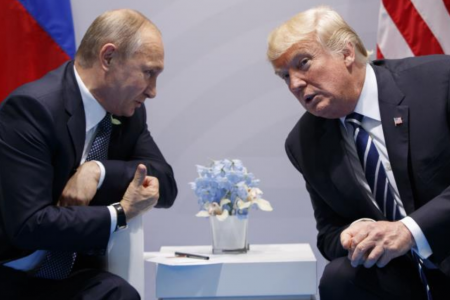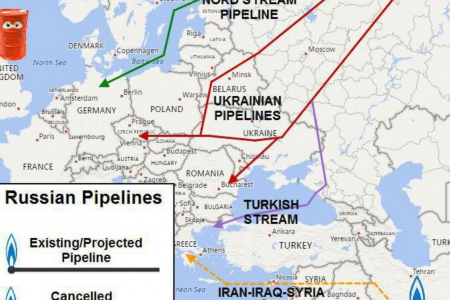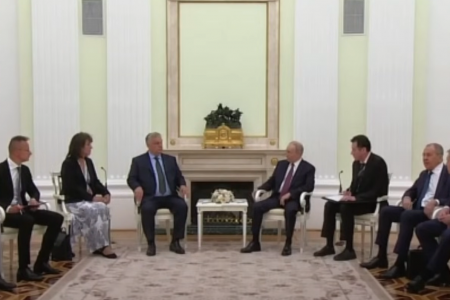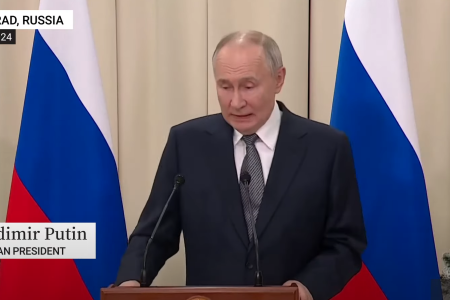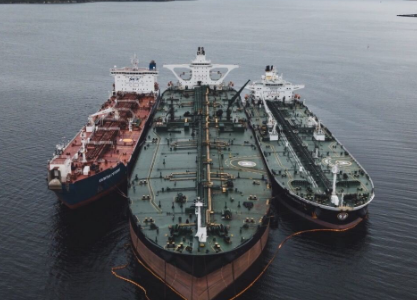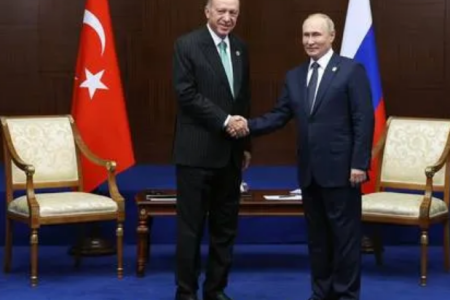
The danger from China’s Coast Guard Law
On February 1, the Law on Coast Guard of the People’s Republic of China (referred to as the New Law on Coast Guard) officially took effect, which stipulates the authority to allow the use of weapons for the China Coast Guard. This attracts the world’s media attention.
The specific content specified in Article 22 of the law writes: “When China’s national sovereignty, sovereign rights, and jurisdictional rights are infringed by foreign individuals and organizations or when faced with the urgent danger of illegal infringement, under this law and other relevant laws, the Coast Guard has the right to take all necessary measures, including the use of weapons, to halt infringement and eliminate the danger.” Thus, the Chinese Coast Guard patrol boat can use weapons against foreign ships (including American submarines or patrol boats of the Japan Coast Guard). This has led to concerns about the possibility of an armed conflict at sea. The fact that the China Coast Guard can use weapons in “waters under the jurisdiction of China” can be considered as corresponding to the world’s standard of using weapons. However, the relevant provisions of this law do not specify which areas are under “Chinese jurisdiction,” which is a violation of international law.
Based on China’s claims, one can see that Beijing claims jurisdiction over 3 million square kilometers of marine space, commonly referred to as China’s “green national territory.” This area includes Bohai Bay; a large part of the Yellow Sea, the East China Sea as far as the eastern waters of the Okinawa Depression, including the waters around the Senkaku/Diaoyu Islands are disputed with Japan; and all waters in the “9 dash line” in the South China Sea (Vietnam calls it the East Sea). According to Beijing’s own calculations, “more than half” of this space is being disputed by other countries.
Based on the terms of the new Chinese Coast Guard Law, what can we predict? In the South China Sea, any foreign fishing vessel, survey, or research vessel found to be operating anywhere in the “9-dash Line,” the Chinese Coast Guard will be allowed to board and inspect (Article 18). If they refuse to comply, armed personnel will board the ship to compel them to do so (Article 47). The Chinese Coast Guard will dispatch units to dismantle structures on all terrains controlled by Vietnam, the Philippines, and Malaysia in the Truong Sa (Spratlys) (Article 20). In the East China Sea, the Chinese Coast Guard will go to the Senkaku/Diaoyu Islands and “expel” any Japanese ships they encounter (Article 17). In the Yellow Sea, the East China Sea, and the South China Sea, the Chinese Coast Guard will chase US Navy spy ships such as USNS Impeccable and hydrological survey ships such as USNS Bowditch for conducting “illegal activities within the exclusive economic zone of China (Article 21).
China promises the Philippines
Many countries have expressed concern about this move by China. The Philippine foreign minister once declared “this is an act of threatening war” by Beijing. However, Philippine Ambassador to China Jose Santiago L. Sta. Romana recently said that the Chinese side confirmed that its new law will not apply to the Philippines. Is it possible to believe such promises made by China?
Many experts around the world have expressed doubts about China’s promises to the world.
When China began three-day exercises in the Gulf of Tonkin in the South China Sea in January 2021, some observers predicted that Beijing was “testing” the Biden regime’s response. Along with the drills, Beijing made tough words, such as the statement by the Chinese Foreign Ministry Spokesman Hua Chunying that “exercise is a necessary measure to firmly defend sovereignty. and national security.”
Even in that context, China’s official stance is still “a commitment to a peaceful solution” in the South China Sea issue.
The words that China used at different times create a remarkable contrast. For example, in July 2020, China’s Ministry of Foreign Affairs affirmed that “China is not seeking to become a sea power” and that it “treats its neighbors equally and exercises maximum restraint.”
So how do we understand these chaotic messages from Beijing? Most experts on China believe that those statements represent China’s intentions, or at least its wishes. However, which statement properly represents China’s position?
Experts need to evaluate the content and specificity of China’s statements, in addition to the stance of the “author” of the statement or the relevant spokesperson.
Statements by Chinese officials on the South China Sea can be divided into “cooperative articles” and “competitive articles” in the South China Sea. The cooperation theme has 2 categories: “cooperation” and “political solution.” The competition theme has 5 categories: sovereignty, military, liberal, tense, and non-regional countries like the US.
Considering all the public speeches made by members of the Politburo of the Communist Party of China between 2013 and 2018, one clear characteristic of this period is: In public statements about the South China Sea, Chinese leaders use more collaborative discourse than competing discourse. This could be a positive signal for regional stability as Beijing appears willing to compromise with other claimants.
However, one of the principles of paraphrasing is that not all leadership statements are of the same weight because individual authority, accountability, and credibility need to be considered. This means that Xi Jinping’s statements (considered “more powerful and more personal than any post-Maoist leader”) will be at the forefront. The bad news is that among competing claims, Xi Jinping’s claims accounted for 42.7% even though he was only one of 39 leaders during this period.
There are many reasons not to consider Xi Jinping’s cooperative claims because he has a reputation for being dishonest.
In September 2015, speaking at the White House, Xi Jinping promised not to “militarize” artificial islands that China has been building in the South China Sea. “The construction-related activities that China is undertaking are not aimed at or impacting any other country and China has no intention of pursuing militarization,” said Xi Jinping. Although the language at that time was considered “new,” the commitment was still unclear. After that, Xi Jinping did not promise to stop dredging and embellishing the island or activities in the area and did not specify what “militarization” meant.
In May 2019, then President of the US Joint Chiefs of Staff Joseph Dunford said that China “clearly … ignores that commitment,” proving that “the runway is about 3,000 km long, the storage facility, ammunition, regularly deploying missile defense capabilities, aviation capabilities … ” on the islands. In fact, China militarized these islands to establish control over the surrounding islands and seas.
Even for the Philippines, in 2016 when Duterte visited China, Xi Jinping promised to invest and lend the Philippines $24 billion. However, in fact, the amount of investment and loan to the Philippines is very little compared to the original promise.
And Vietnam?
China also always makes very good promises to Vietnam. And in fact, many times Vietnam “tasted the bitter fruit” of the promises made by Chinese leaders. In 2011, when he was just elected General Secretary of the ruling Communist Party of Vietnam, Mr. Nguyen Phu Trong visited China and the two sides signed an “Agreement on Basic Principles for Settling disputes at sea.” The two sides have also set up hotlines to resolve disputes at sea. However, in 2014, when China illegally placed a giant drilling rig in Vietnam’s EEZ, Vietnam’s diplomatic efforts to solve this problem were unsuccessful to settle the disputes at sea while the hotline between the two sides was “out of coverage” while the agreement on basic principles to settle disputes at sea is considered as “a flipped paper.”
Recently, in an article published in the Vietnam People’s Army newspaper, the Chinese Ambassador to Vietnam wrote: “In the coming time, the two countries need to promote a good tradition of friendship and strengthen their bilateral cooperation. The continuous deepening of the China-Vietnam friendship is in line with the fundamental interests of the two countries and the people of the two countries. The two sides need to strengthen cooperation for mutual benefits, develop solidarity, persistently pursue multilateralism and free trade, accelerate cooperation between the ‘Belt and Road’ initiative and the ‘Two corridors, one belt,’ promote practical cooperation in the post-COVID-19 period and in other fields such as high-tech agriculture, e-commerce, public health, etc.
The two countries need to persevere in negotiation to maintain regional stability. Peace and stability are the prerequisites for prosperity. As two neighboring countries, it is difficult to avoid times of disagreement, the two sides need to seriously implement the important common understanding of the leaders of the two parties and two countries, settle the disagreement through friendly negotiation to maintain bilateral cooperation of the two countries for development.”
Can anyone believe in the words of this country the world calls this “wolf in sheep’s clothing“?
Thoibao.de (Translated)
Source: https://www.rfa.org/vietnamese/news/blog/scs-are-chinese-promises-credible-02242021113553.html





